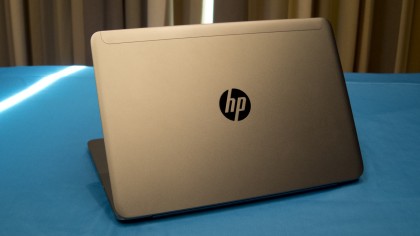HP's split: How we got here and what we can expect
The inevitable fate of a tech giant
HP's focus
As a result of the split, HP will now be able to do something it wasn't able to before: focus. With these dissimilar business units united, there will likely always be internal conflict within the organization for the company's attention and resources. This will distract from actual solutions being identified to ensure both sides of the business thrive equally. HP is a complex enterprise that was bound to get messy, the organizational clumsiness driven by chasing both business-to-business and business-to-consumer markets at the same time, both of which have very different customer needs and sales cycles.
For example, this wouldn't be the first time that a tech heavyweight has adapted to the shifting trends in the PC market and attempted to focus itself. For example: IBM sold its PC arm to Lenovo in 2004. Similar to HP's spinoff, one of the IBM businesses was thriving more than the other - the hardware and enterprise-level service businesses was (and still is) a good one, but the PC businesses was dragging. Without the distraction of the PC arm, IBM was better off and Lenovo became the top-selling PC name in 2012, displacing even HP.

HP stakeholders can rest easy as both IBM and Lenovo thrived after the split, particularly because such different businesses need dedicated leadership, attention and resources in order to truly succeed.
In terms of the financial circumstances that led HP leadership to the decision to split, the company's most recent financial statement suggests that its $42.6 billion PC and printer business saw a 3.1% sales increase from September 2013 - July 2014, although still falling behind Lenovo in the PC industry, according to IDC.
Despite these healthy numbers, HP's enterprise hardware and services unit plunged, generating $31.4 billion in revenue, 19% below its revenues for September 2012 - July 2013. At this rate, HP was quickly losing its position as a leader in the industry, particularly when trying to sell to businesses, as opposed to consumers. Luckily, it seems as though there is still profit potential in the printer business, which HP actually pioneered in the 1980s.
In all likelihood, HP is responding to shareholder demands for more aggressive growth, driving the separation. Ultimately, the slower-growth business will be detached from the other in order to rapidly achieve growth.
This has been a successful tactic for media companies like News Corp., Gannett and Time Warner Inc., which are breaking off their print businesses in order to accelerate the growth of broadcast operations. This is helpful for the media companies, as well as Hewlett-Packard, to resolve any cultural and organizational conflicts that may exist between the firm's current and future businesses.
Sign up to the TechRadar Pro newsletter to get all the top news, opinion, features and guidance your business needs to succeed!
In a way, this decision serves as vindication for former HP CEO, Leo Apotheker. Apotheker knew then what investors couldn't or wouldn't accept: HP was just too big and static to compete in the market landscape. During his time as CEO, Apotheker planted the seed for such a split, wanting to sell off the company's personal computer business and focus on selling software and services to business customers.
The investors on Wall Street put the kibosh on the plan and not soon after, Apotheker was fired. Despite this, he did have a point - he wanted to cut HP's PC business loose (even though it's been making money all this time) because PCs are a business of increasingly miniscule returns for HP. Why?
Because, despite its attempts to keep up and glitz up its product, HP has failed to be a leader in the industry. Instead of trying to innovate and lead the way on technology, HP has always tried to win on the merit of well-worn corporate connections and price. Unfortunately, this hasn't delivered the results the company was hoping for, leading CEO Meg Whitman to finish what Leo Apotheker started.